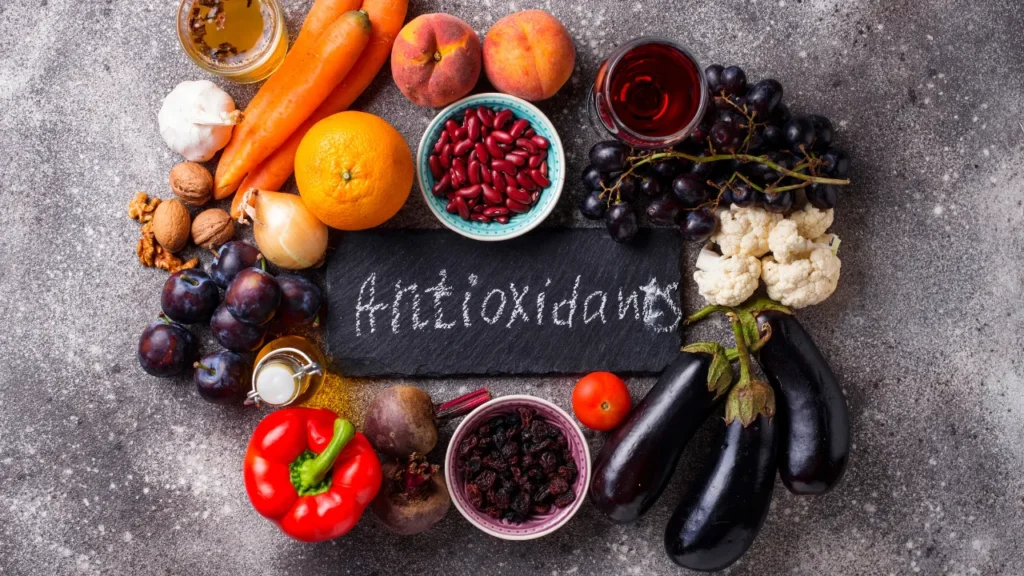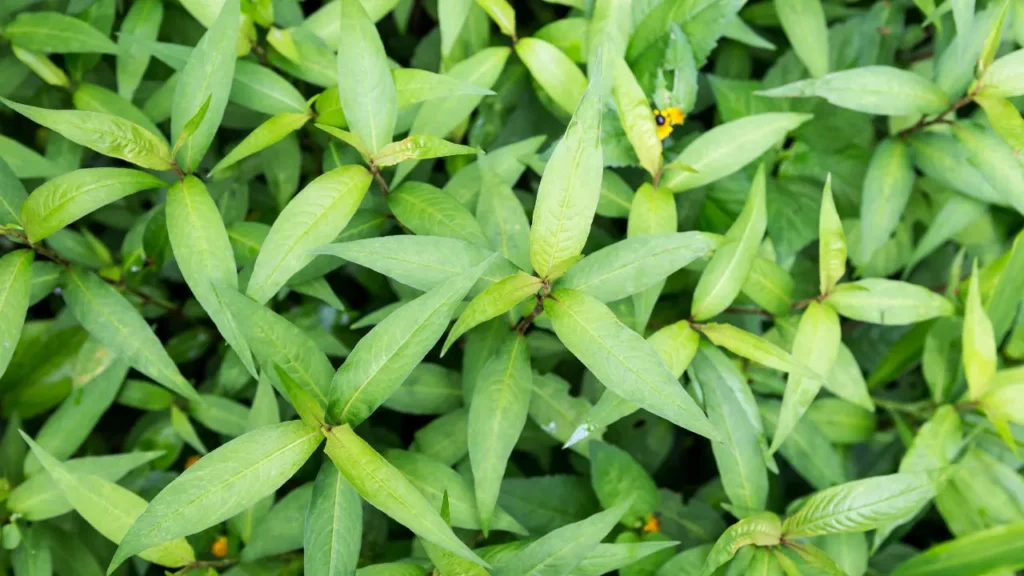Vietnamese coriander (Persicaria odorata), also known as Vietnamese mint, Rau Răm, or laksa leaf, is a herbaceous plant native to Southeast Asia. It is widely used in culinary practices across Vietnam, Malaysia, and Thailand for its distinctive spicy, tangy flavor, and aromatic leaves. Beyond its culinary appeal, Vietnamese coriander has garnered attention for its potential nootropic benefits—substances that may improve cognitive function, particularly executive functions, memory, creativity, or motivation, in healthy individuals. This scholarly article delves into the nature, health benefits, optimal dosage, side effects, potential substance interactions, and the responsible use of Vietnamese coriander as a nootropic supplement, with a focus on enhancing alertness, focus, and cognition.
You May Also Like:
Keep Your Brain Young With the 5 Most Powerful Nootropic Supplements
Finding the Best Supplements for Brain Fog After COVID: 5 Top Brands Reviewed
Vietnamese Coriander: Benefits, Dosage, Side Effects, Drug Interactions, and Other Important Information is an original (NootropicsPlanet) article.
Nature of Vietnamese Coriander
Vietnamese coriander is a perennial plant thriving in tropical climates, characterized by its pointy leaves with a dark, purple streak across the middle. The plant contains a variety of essential oils, flavonoids, and other phytochemicals that contribute to its medicinal properties. The primary components include aldehydes (such as decanal), ketones (camphor), and alcohols (borneol), which are believed to interact with the human body to produce therapeutic effects.
Health Benefits of Vietnamese Coriander
Research suggests that Vietnamese coriander exhibits several health benefits, including anti-inflammatory, antimicrobial, and antioxidative properties. These effects are attributed to its rich composition of phytochemicals. In the context of cognitive functions, the anti-inflammatory properties are particularly relevant, as inflammation is a known factor that can impair cognitive performance. By mitigating inflammation, Vietnamese coriander may help preserve or enhance cognitive functions, including alertness and focus.

Chemical Composition of Vietnamese Coriander
Vietnamese coriander contains a complex array of phytochemicals contributing to its medicinal properties and potential cognitive benefits. Key constituents include:
- Essential oils: The plant is rich in essential oils, which are volatile compounds responsible for its aromatic properties. These oils include a variety of aldehydes, such as decanal, which imparts a citrus aroma, and ketones like camphor, which has a cooling effect. The essential oils can cross the blood-brain barrier, potentially affecting brain function directly.
- Flavonoids: Vietnamese coriander is a source of flavonoids, a class of polyphenolic compounds known for their antioxidative and anti-inflammatory effects. Flavonoids can modulate signaling pathways involved in cognitive processes and neuroprotection, suggesting a direct mechanism through which Vietnamese coriander may enhance cognitive function.
- Alcohols: Borneol, a bicyclic monoterpene alcohol found in the plant, is notable for its use in traditional medicine to enhance the efficacy and penetration of other compounds. Borneol may facilitate the transport of other beneficial compounds across the blood-brain barrier, amplifying their effects on cognitive health.
Physiological Mechanism of Action of Vietnamese Coriander
The phytochemicals in Vietnamese coriander interact with the body’s physiological processes in several ways to support cognitive function potentially:
- Anti-inflammatory Action: Chronic inflammation is a known factor that can impair cognitive function and contribute to neurodegenerative diseases. The flavonoids and other anti-inflammatory compounds in Vietnamese coriander may reduce inflammation in the brain, thereby protecting neurons and supporting cognitive functions such as memory and attention.
- Antioxidative Effects: Oxidative stress results from an imbalance between free radicals and antioxidants in the body, leading to cellular damage. The antioxidative compounds in Vietnamese coriander can neutralize free radicals, protecting neurons from oxidative damage and supporting cognitive health.
- Digestive Relief: Vietnamese coriander’s anti-inflammatory properties may help soothe digestive discomfort and alleviate symptoms of gastrointestinal upset, such as nausea and diarrhea. Additionally, its antimicrobial activity could potentially contribute to a healthier gut microbiome, supporting overall digestive function and promoting intestinal health.
- Neuroprotection: By reducing neuroinflammation and oxidative stress, the compounds in Vietnamese coriander may offer neuroprotective benefits, safeguarding the brain’s structure and function. This neuroprotection is crucial for maintaining cognitive functions, especially in aging populations at risk for cognitive decline.
- Modulation of Neurotransmitter Systems: Although the research is in its early stages, some evidence suggests that Vietnamese coriander’s phytochemicals may interact with neurotransmitter systems, such as enhancing cholinergic activity or modulating the release of neurotransmitters like dopamine and serotonin. These interactions could improve neural communication, enhancing cognitive processes such as learning, memory, and attention.


Optimal Dosage of Vietnamese Coriander
Determining the optimal dosage of Vietnamese coriander for nootropic benefits is complex due to the variability in individual responses and the lack of extensive clinical trials specifically targeting cognitive enhancement. However, in traditional medicine, small amounts are typically used for culinary purposes or steeped in teas. For therapeutic uses, it’s crucial to start with low doses and gradually increase as tolerated, monitoring for any adverse effects. Consultation with a healthcare provider is recommended to determine an appropriate dosage based on personal health status and goals.
Side Effects of Vietnamese Coriander
While Vietnamese coriander is generally considered safe when consumed in food quantities, higher dosages might lead to gastrointestinal upset, including nausea and diarrhea. Individuals with a sensitivity to plants in the Polygonaceae family should exercise caution due to the potential for allergic reactions.
Potential Substance Interactions of Vietnamese Coriander
Vietnamese coriander may interact with anticoagulant medications due to its potential antiplatelet properties, potentially increasing the risk of bleeding. It may also interact with diabetic medication by enhancing the glucose-lowering effects, necessitating adjustments in dosages. As with any supplement, it is crucial to consult a healthcare provider to assess the risk of interactions with existing medications or conditions.


Best Responsible Use of Vietnamese Coriander
For those interested in exploring Vietnamese coriander as a nootropic, responsible use entails several key considerations. First, establishing realistic expectations based on current scientific evidence is crucial. While Vietnamese coriander shows promise, it is not a panacea for cognitive enhancement and should be used as part of a holistic approach that includes a healthy diet, regular exercise, and sufficient sleep.
Second, sourcing from reputable suppliers is important to ensure the quality and purity of the supplement. Third, starting with a low dosage and monitoring the body’s response allows for adjustments based on personal tolerance and effectiveness. Finally, consulting with a healthcare provider before starting any new supplement regimen is essential, particularly for individuals with pre-existing health conditions or those taking other medications.
Vietnamese Coriander:
Conclusion
Vietnamese coriander is a plant that shows promise for culinary applications as well as possible cognitive benefits. Its complex phytochemical makeup, which includes alcohols, flavonoids, and essential oils, highlights its range of health advantages, including its anti-inflammatory, antioxidative, and neuroprotective properties.
While research into the precise mechanisms and best dosages for improving cognitive function is still ongoing, appropriate use is crucial, involving judicious dosing and consulting medical professionals. Like any supplement, it’s important to recognize its limitations and incorporate them within a comprehensive strategy for overall health.
Vietnamese coriander presents an intriguing path for investigation in the interest of cognitive well-being, but cautious thought and well-informed decision-making continue to be fundamental components of its application.


References:
- VIETNAMESE CORIANDER: CULTIVATION AND CULINARY DELIGHTS. Retrieved from: https://eatyouryardjax.org/persimmon-blog/vietnamese-coriander-cultivation-and-culinary-delights
- WebMB Vietnamese coriander. Retrieved from: https://www.webmd.com/vitamins/ai/ingredientmono-1532/vietnamese-coriander
- Vietnamese Coriander. Retrieved from: https://www.specialtyproduce.com/produce/Vietnamese_Coriander_11465.php
Important Note: The information contained in this article is for general informational purposes only, and should not be construed as health or medical advice, nor is it intended to diagnose, prevent, treat, or cure any disease or health condition. Before embarking on any diet, fitness regimen, or program of nutritional supplementation, it is advisable to consult your healthcare professional in order to determine its safety and probable efficacy in terms of your individual state of health.
Regarding Nutritional Supplements Or Other Non-Prescription Health Products: If any nutritional supplements or other non-prescription health products are mentioned in the foregoing article, any claims or statements made about them have not been evaluated by the U.S. Food and Drug Administration, and such nutritional supplements or other health products are not intended to diagnose, treat, cure, or prevent any disease.
